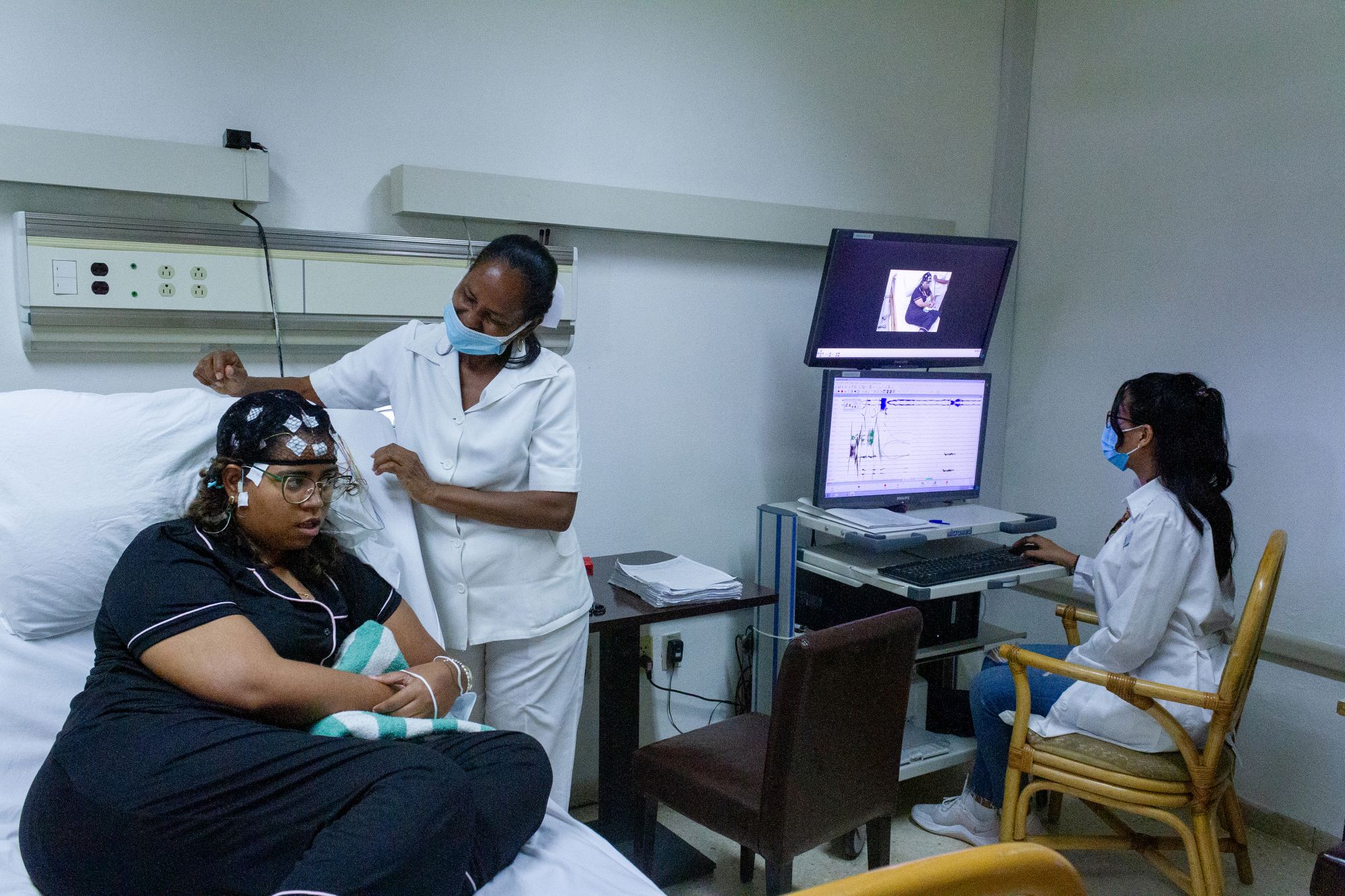At 15 years of age, Paulina Lebrón Guevara was far from imagining the change in her life and that of her family when she was diagnosed with Rasmussen encephalitis, a rare, inflammatory and autoimmune disease, with atrophy associated with drug-resistant epilepsy, progressive hemiplegia and cognitive impairment, which affected her school development, as she presented problems in the retention of knowledge.
In her native Puerto Rico she received attention from neurologists, but the efforts were in vain: she did not improve, despite the various admissions, which involved putting her in a coma to stop increasingly frequent convulsions. According to Rosa Guevara Ortiz, her mother, in 2016 she spent a month hospitalized, and after a very complex night, the doctors informed her that they could do nothing more to cure her daughter or at least alleviate her pathology.
From there she began to seek second and third opinions. They arrived in the United States with a specialist in brain inflammation, who asked to do a biopsy, which she refused because of the risks of such a procedure. In mid-2019, he made an appointment at the Mayo Clinic in Jacksonville, Florida, where he underwent electroencephalographic studies for a week and, after his medical discharge, the neurologist told him to return to Puerto Rico until his case could be evaluated collectively.
On August 29, 2019, the official communication about the treatment options for Paulina arrived. According to her mother, the medical team's report outlined the possibility of subjecting the 23-year-old to chronic subthreshold stimulation therapy that would require an implant and covering with a large grid over the left frontocentral and parietal regions of the head. This involved awareness of the risk of morbidity with implantation of grid strips and electrodes of up to 6.6 percent, in addition to infection, considering his history of immunosuppressive treatment. Surgery, on the other hand, much to the family's insistence, also offered no assurance of success. Then, Cuba was the hope.
Another island on the horizon for the Lebron Guevaras
They arrived in the largest of the Antilles in September 2019, through a travel agency based in Puerto Rican territory and entered the International Center for Neurological Restoration (Ciren), located in Havana. A few days after being in therapy and completing the telemetry study, the doctors in charge of the young woman's care approached her mother to tell her that the rehabilitation was a waste of time and money, because Paulina required an operation and explained the details.
Rosa spoke with her husband and both authorized the surgical treatment, but asked that they talk to Paulina first, since she was already 23 years old, and she herself decided to undergo the surgery, which lasted 16 hours. They were afraid that she would die or in the best of circumstances she would be left as a vegetable and without memory; but, to everyone's delight, she woke up well and in the first weeks of her recovery she had full-time nurses who took good care of her.
After the operation, she remained six months on the Island to recover more muscle mass, learn to say she was going to the bathroom, stand up and take steps holding on to the wall and other objects. Guevara Ortiz acknowledged how difficult it would be to return to Puerto Rico under the conditions of Paulina's first postoperative months and is grateful for the patience and love with which the Ciren therapists welcomed her daughter until she was able to move on her own. Paulina received treatment at the International Center for Neurological Restoration.
Paulina received treatment at the International Center for Neurological Restoration.
On April 1, 2020, Paulina arrived in her country and immediately began physical, speech and aquatic therapies, with evident signs of progress, and although the COVID-19 pandemic limited her return, during that pandemic period they maintained communication, which is still permanent today, with the neurologist, neurosurgeon and other professionals of the institution.
A little more than five years after the successful surgery, Rosa recognizes the expertise and professionalism of the Cuban specialists in the field of neurological restoration, the good treatment, the attention and the accompaniment received since her arrival to the archipelago, in the hospital and until the departure of her youngest daughter with a favorable state of health. She affirms that when she thinks of this Caribbean nation her soul shudders with love, affection and gratitude, because Cuba saved her Paulina.
By Beatriz Vaillant Rodríguez
Photos: Leonid Prado
Taken from Destino Salud Magazine